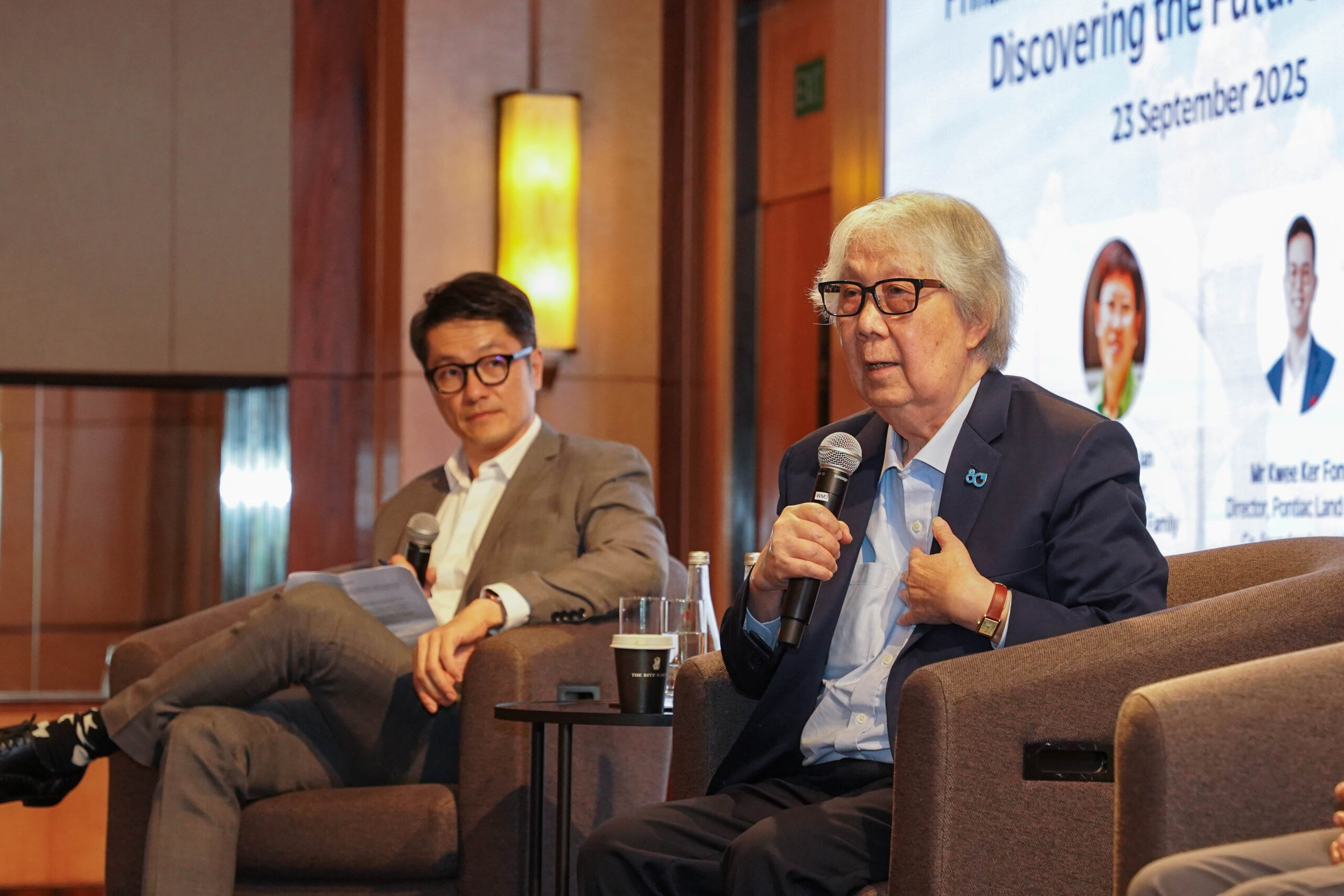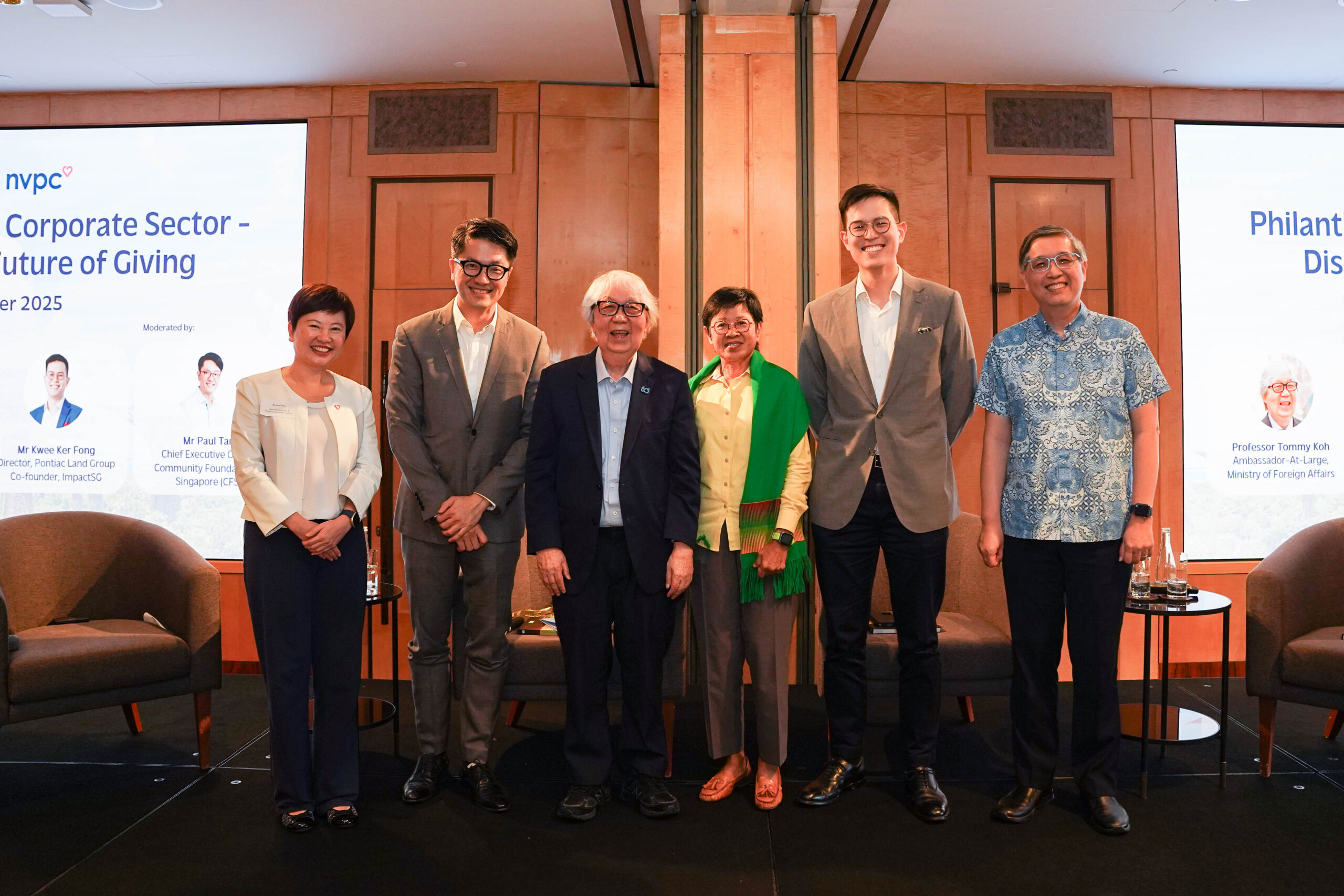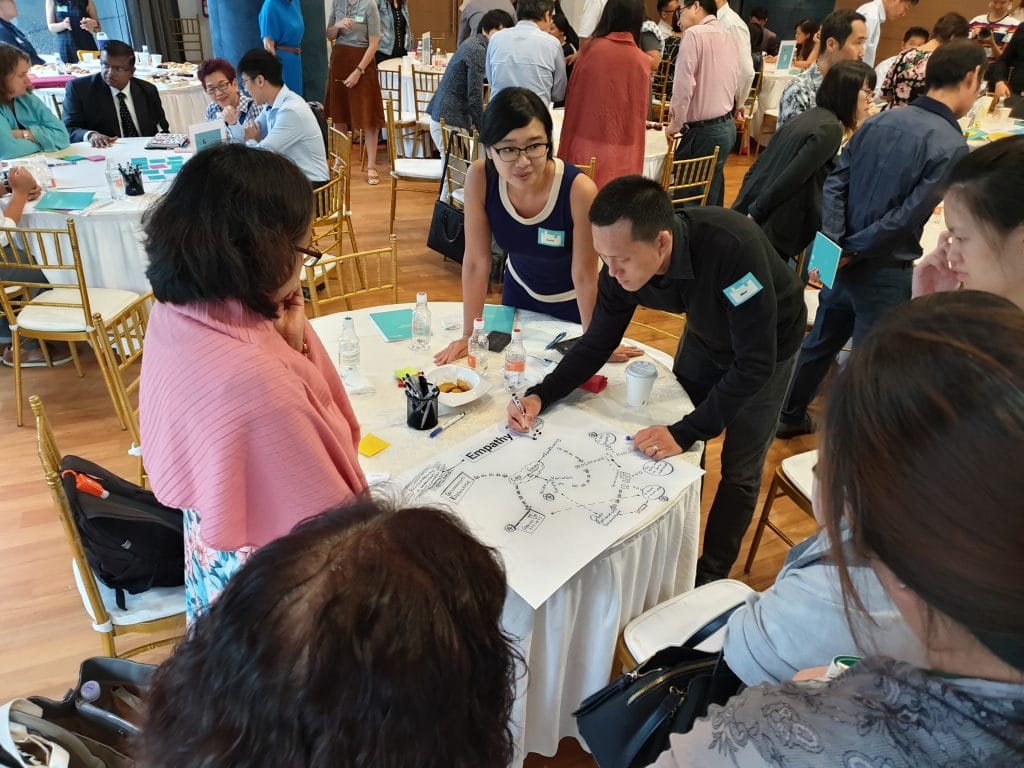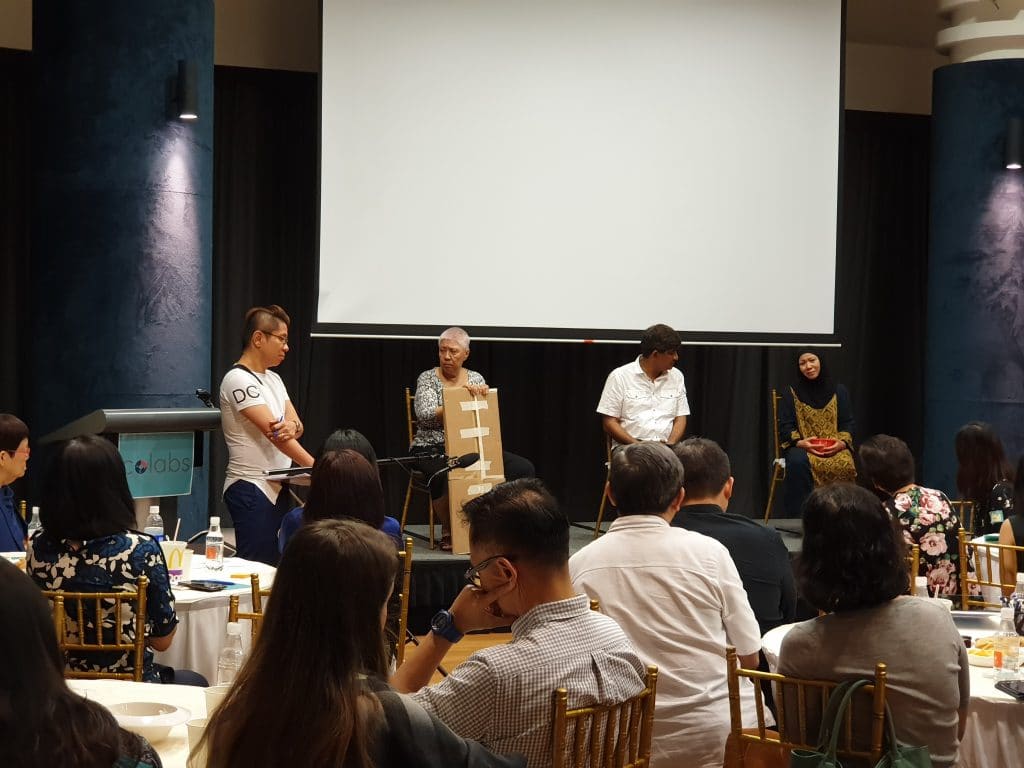Colabs launches Seniors series to tackle the question ‘How can our seniors live more happily in the community?’

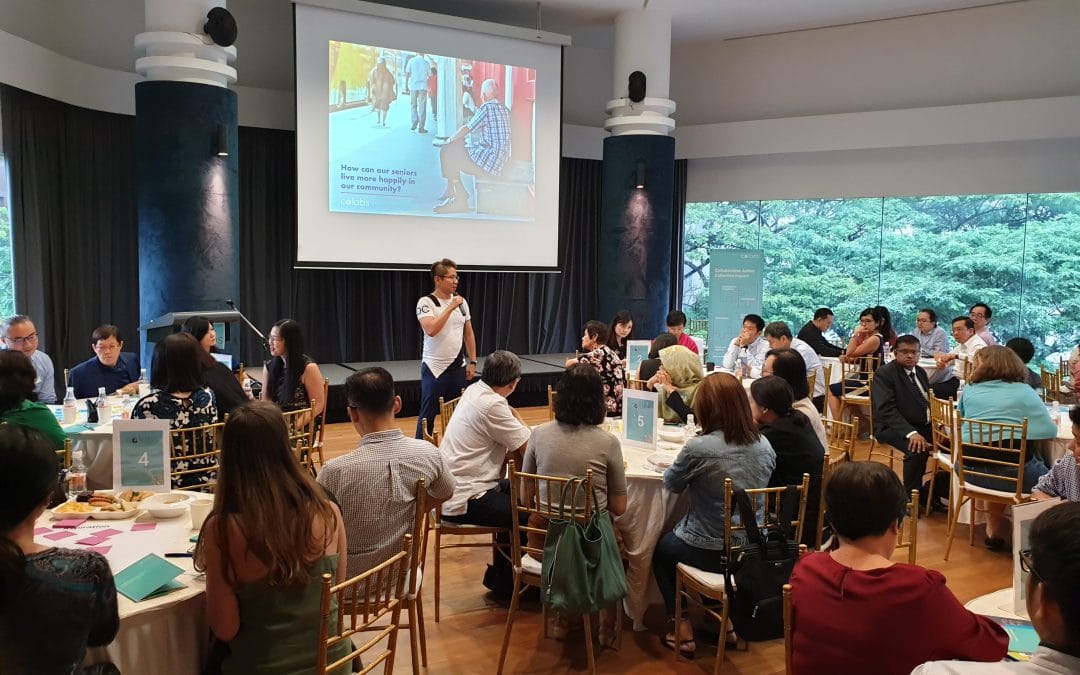
In October 2018, 55 representatives from the government, corporate and non-profit sectors together with a group of senior citizens, gathered to deliberate the answers to one question: How can our seniors live more happily in the community?
For everyone in the room, the inaugural session of Seniors Colabs marked the start of a new collaborative journey, with participants expected to meet regularly over a six-month period to share knowledge, build insights and find practical ways to help seniors age well. As the third and final run of a three-part Colabs series, Seniors Colabs brings people with a common desire to tackle issues around growing old in Singapore.
The Lien Foundation kicked off the session with an overview of the senior care landscape. Research showed that while Singaporeans were ageing from a position of strength in terms of health and financial outcomes, higher life expectancies and declining fertility rates will mean fewer caregivers for a fast-ageing population. Given this, families will have to increasingly depend on the community for support and care in the long run.
Moving away from the broader perspective, participants at the second session in November took a human-centered approach to understand the needs of the elderly. Insights were shared by the National Council of Social Services’ “Understanding the Quality of Life for Seniors” – a study that surveyed over 1,000 seniors living in Singapore on their perceived well-being.
Results showed that in line with global trends, seniors in Singapore have a significantly lower quality of life compared with the general population. The elderly in Singapore were most keen to see improvements in their physical and psychological well-being; as well as an increase in their level of independence.
During discussions that followed, Colabs participants acknowledged that seniors in Singapore are a diverse group. Thus, having the right mindsets and assumptions determined whether services would be relevant. Most participants took a practical stance and spoke about issues around social support, caregiving, healthcare, finance and mobility. “Empathy alone does not pay the bills,” summed up a Colabs participant from a non-profit organisation.
Invigorated by passionate conversations, the Seniors Colabs community closed the year by taking the opportunity to establish connections with like-minded people across sectors.
Colabs is a philanthropic initiative by the National Volunteer and Philanthropy Centre and the Community Foundation of Singapore. It drives collaboration by bringing together the public, private and social sectors to tackle complex social issues. It enables philanthropists, businesses, non-profits and sector experts to collectively build insights and co-create solutions for lasting change.
The next session of Seniors Colabs will take place in January 2019. If you’re interested in Colabs, visit here or write to colabs@cf.org.sg.
In October 2018, 55 representatives from the government, corporate and non-profit sectors together with a group of senior citizens, gathered to deliberate the answers to one question: How can our seniors live more happily in the community?
For everyone in the room, the inaugural session of Seniors Colabs marked the start of a new collaborative journey, with participants expected to meet regularly over a six-month period to share knowledge, build insights and find practical ways to help seniors age well. As the third and final run of a three-part Colabs series, Seniors Colabs brings people with a common desire to tackle issues around growing old in Singapore.
The Lien Foundation kicked off the session with an overview of the senior care landscape. Research showed that while Singaporeans were ageing from a position of strength in terms of health and financial outcomes, higher life expectancies and declining fertility rates will mean fewer caregivers for a fast-ageing population. Given this, families will have to increasingly depend on the community for support and care in the long run.
Moving away from the broader perspective, participants at the second session in November took a human-centered approach to understand the needs of the elderly. Insights were shared by the National Council of Social Services’ “Understanding the Quality of Life for Seniors” – a study that surveyed over 1,000 seniors living in Singapore on their perceived well-being.
Results showed that in line with global trends, seniors in Singapore have a significantly lower quality of life compared with the general population. The elderly in Singapore were most keen to see improvements in their physical and psychological well-being; as well as an increase in their level of independence.
During discussions that followed, Colabs participants acknowledged that seniors in Singapore are a diverse group. Thus, having the right mindsets and assumptions determined whether services would be relevant. Most participants took a practical stance and spoke about issues around social support, caregiving, healthcare, finance and mobility. “Empathy alone does not pay the bills,” summed up a Colabs participant from a non-profit organisation.
Invigorated by passionate conversations, the Seniors Colabs community closed the year by taking the opportunity to establish connections with like-minded people across sectors.
Colabs is a philanthropic initiative by the National Volunteer and Philanthropy Centre and the Community Foundation of Singapore. It drives collaboration by bringing together the public, private and social sectors to tackle complex social issues. It enables philanthropists, businesses, non-profits and sector experts to collectively build insights and co-create solutions for lasting change.
The next session of Seniors Colabs will take place in January 2019. If you’re interested in Colabs, visit here or write to colabs@cf.org.sg.
- Related Topics For You: AGEING WELL, CAREGIVER SUPPORT, COLABS, COLLECTIVES, DIRECT AID, DONOR STORIES, EVENTS, FAMILIES, HEALTH, MENTAL WELLBEING, PROMOTING HEALTHCARE, SENIORS
